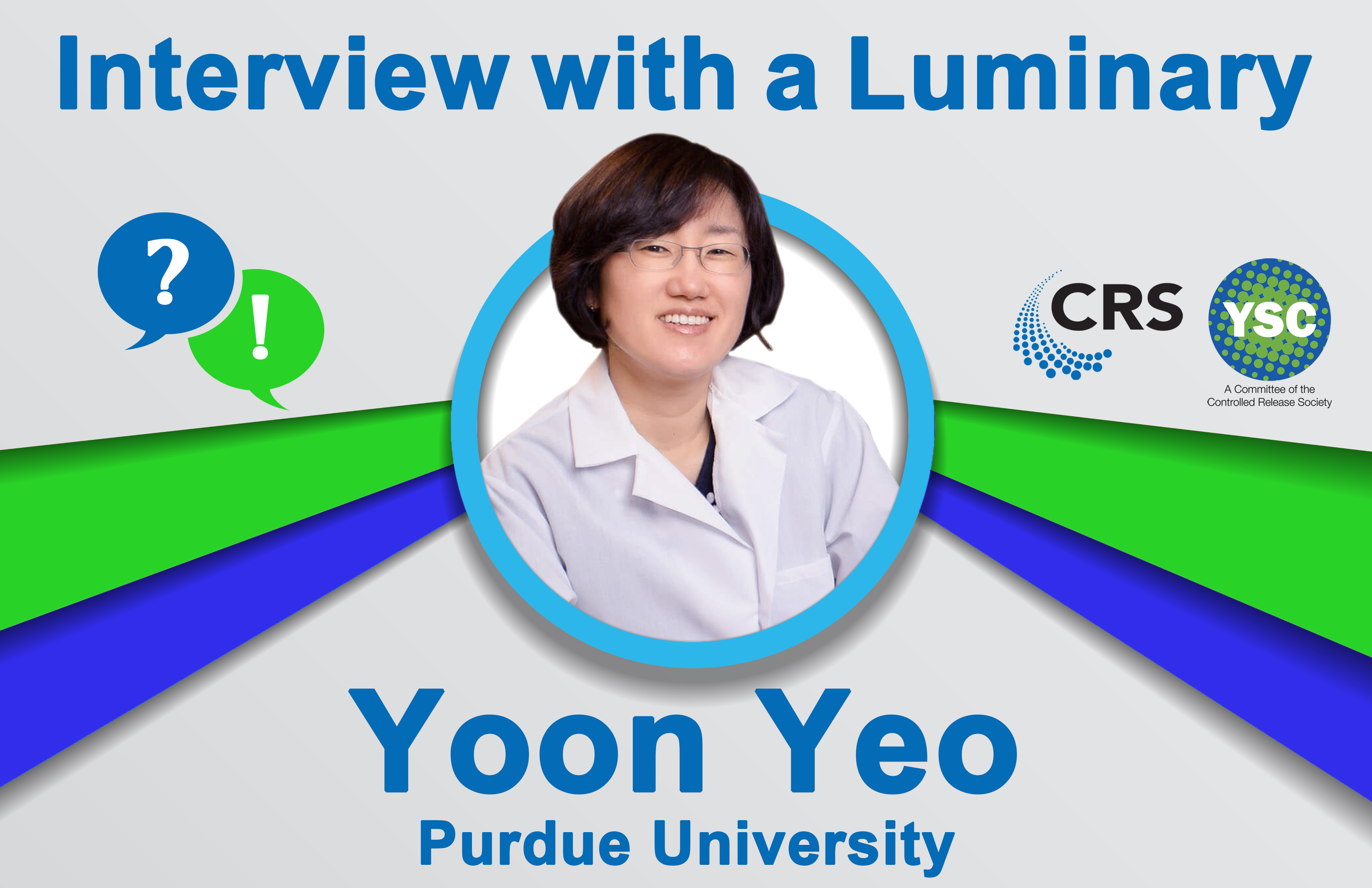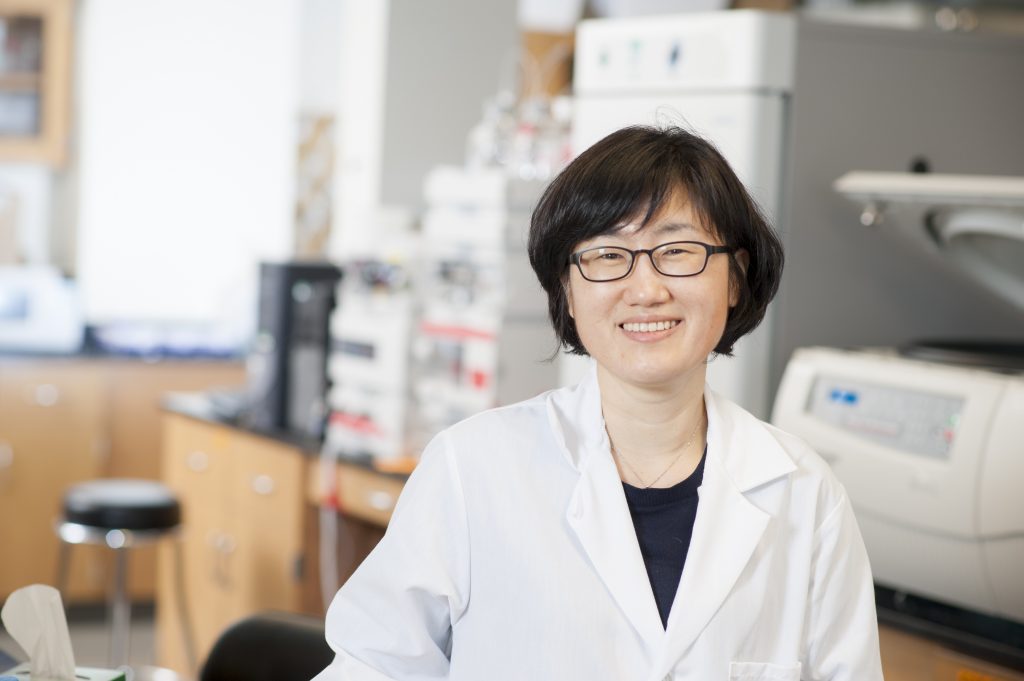
Prof. Yoon Yeo is a Professor and Associate Department Head of Industrial and Physical Pharmacy at the College of Pharmacy with a joint appointment in Biomedical Engineering at Purdue University, West Lafayette, USA. She earned a B.S. degree in Pharmacy and M.S. in Microbial Chemistry at Seoul National University in South Korea, and Ph.D. in Pharmaceutics at Purdue. She received post-doctoral training at MIT and joined the faculty at Purdue in 2007. Prof. Yeo leads a research program specializing in nanoparticle engineering for drug delivery to solid tumors, intracellular delivery of gene therapeutics and antibiotics, functional biomaterials for immunomodulation, and local drug delivery. Prof. Yeo received the NSF CAREER award and New Investigator Awards from the AAPS and AACP. Prof. Yeo is a Fellow of the AAPS and currently serves as an Associate Editor for the Journal of Controlled Release.

Questions for Luminary
- What sparked your interest in science in general and drug delivery in particular?
After getting my master’s degree, I worked at Samyang Pharmaceutical R&D, now known as the Biopharmaceutical Division at Samyang Holdings in South Korea, for 4.5 years. There I learned about then-new drug delivery technologies, such as polymeric micelles, microparticles, non-viral gene carriers, and hydrogels, and was fascinated by the potential benefits that the new technologies may bring to patients.
- Share a turning point or defining moment you experienced in your work as a scientist.
I have had my share of negative (?) or at least unexpected results. They are at first disappointing and frustrating. But when I take a step back and look at them from a different angle, the seemingly negative results unveil new insights and opportunities. I am proud of our two “Revisited” papers, where we reported fluorescence artifacts that may lead to the overestimation of nanoparticle delivery to targets. The results defied our original hypothesis and were thus difficult to interpret. However, when we approached them with an open mind, they were far more interesting and gained more attention from peers than the expected outcomes. Having learned that fun, I like to play mental exercises with students to challenge their interpretations with alternatives. As Sherlock Holmes once said, “When you have eliminated the impossible, whatever remains, however improbable, must be the truth.”
- Tell us about the exciting ways in which your particular field is progressing.
Many of us in the drug delivery field may agree that one of the silver linings found in the COVID-19 crisis is the spotlight that lipid nanoparticles have received in the past year. The public recognition of gene therapeutics and the significance of carriers will help us make a case for grants, investments, and academia-industry partnerships, and I foresee exciting new developments to emerge in the near future. Immunotherapy is another area where nanomedicine and functional biomaterials have actively been engaged. But don’t forget that the unprecedented speed of mRNA vaccine development owes to all the groundwork laid over decades through several virus outbreaks. The timely adaptation to the immunotherapy field was possible due to the advances in materials science underlying drug delivery systems and biomaterials. A trend is one thing, but the ability to catch up with the trend comes from our fundamental understanding of the biology-material interface and the principles in drug delivery. We will just have to be persistent and optimistic. Good technology prevails.
- What is the best piece of professional advice you have received and from whom?
I have too many. I have been fortunate to have many wonderful mentors, Profs. Kinam Park, Sungwan Kim, Daniel Kohane, and Bob Langer. I will introduce one I heard from Prof. Langer in my first year as an assistant professor. At a conference, he showed excerpts of critiques that he had received as a junior investigator. The audience laughed because all knew that many of them proved wrong and some unfair, but I did not find it funny: I just got my first grant rejection days ago! I asked how he weathered the rejections and criticisms. He said, “Anyone can do great when things go well; it is what you do when things are not in your favor that makes the difference.” I haven’t complained since then.
- Would you change anything about your career path if you could start over?
I could see myself going to a medical school and becoming a physician or studying graphic art to make a medical illustrator, but I would still be doing something medical.
- What advice would you give to someone who is starting their scientific career?
Focus on important problems, stay open-minded, and develop a thick skin (you will live with rejections and criticisms).
- What do you enjoy doing outside of the lab? What are your hobbies/interests?
I watch movies and listen to music. I like trying out new electronics and good speakers.


